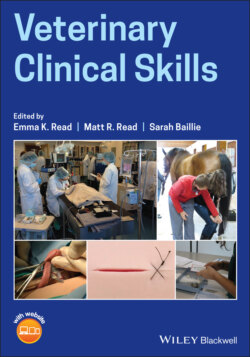Читать книгу Veterinary Clinical Skills - Группа авторов - Страница 24
Laboratory Classes, Including Clinical Skills Laboratories and Simulations
ОглавлениеLaboratory classes provide necessary hands‐on experiences and are essential in the development of the clinical skills required of a Day‐One veterinarian or veterinary nurse. Clinical skills laboratories provide many benefits, including providing student‐centered learning in a (usually) stress‐free environment, supporting animal welfare, providing standardized training, and they are the ideal venues to run multi‐station Objective Structured Clinical Examination (OSCE) circuits (Dilly et al., 2017). These labs provide a setting where students gain confidence and competence through deliberate and repeated practice and can receive both formative feedback and summative assessment (Morin et al., 2020). Fundamental technical skills and procedures can be taught much earlier during the curriculum than in the past, and students' technical experience at graduation will therefore not only be determined by exposure to cases encountered during final year clinical rotations, with obvious benefits on student‐readiness to enter veterinary practice (Morin et al., 2020). Skills laboratories provide ample opportunities for students to learn under faculty supervision before they enter less‐controlled work environments as part of their later training (Dilly et al., 2017). Furthermore, skills laboratories promote self‐directed learning and peer teaching and can take advantage of new technologies and tools to enhance learning (Morin et al., 2020).
Skills laboratories are also time consuming, are often personnel‐intense, and can be expensive to build and maintain, with facility development and staffing often being the largest expenses (Dilly et al., 2017). Careful consideration should be given as to how to best utilize clinical skills laboratories in order to ensure maximal efficiency of their use.
